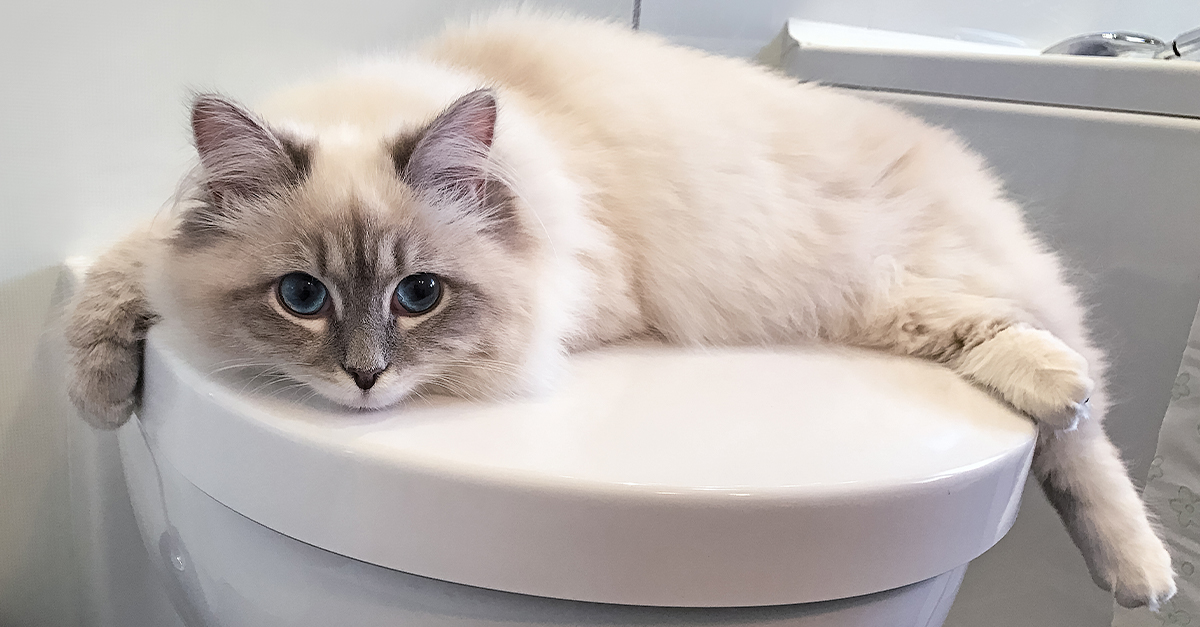Potential Issues of Flushing Cat Poop Down Your Toilet - Safeguard Your Plumbing
Potential Issues of Flushing Cat Poop Down Your Toilet - Safeguard Your Plumbing
Blog Article
We've come across this great article relating to How to Dispose of Cat Poop and Litter Without Plastic Bags below on the web and felt it made perfect sense to share it with you over here.

Introduction
As cat proprietors, it's necessary to be mindful of how we take care of our feline close friends' waste. While it might appear hassle-free to purge feline poop down the commode, this practice can have harmful consequences for both the setting and human health.
Ecological Impact
Flushing feline poop introduces hazardous virus and parasites right into the water supply, positioning a substantial risk to aquatic environments. These impurities can adversely influence aquatic life and concession water quality.
Health Risks
In addition to ecological concerns, purging pet cat waste can additionally present health and wellness dangers to humans. Cat feces may have Toxoplasma gondii, a bloodsucker that can trigger toxoplasmosis-- a potentially extreme health problem, especially for pregnant females and individuals with weakened immune systems.
Alternatives to Flushing
Luckily, there are more secure and more responsible methods to get rid of pet cat poop. Take into consideration the complying with options:
1. Scoop and Dispose in Trash
The most typical approach of dealing with feline poop is to scoop it into a naturally degradable bag and throw it in the garbage. Be sure to utilize a dedicated clutter scoop and deal with the waste without delay.
2. Use Biodegradable Litter
Opt for biodegradable pet cat litter made from materials such as corn or wheat. These litters are eco-friendly and can be safely dealt with in the garbage.
3. Bury in the Yard
If you have a yard, think about burying pet cat waste in a designated location away from veggie yards and water sources. Make certain to dig deep sufficient to stop contamination of groundwater.
4. Set Up a Pet Waste Disposal System
Buy an animal garbage disposal system specifically created for pet cat waste. These systems use enzymes to break down the waste, decreasing smell and environmental impact.
Final thought
Responsible pet possession prolongs beyond offering food and shelter-- it additionally entails correct waste administration. By refraining from purging pet cat poop down the bathroom and choosing alternative disposal approaches, we can reduce our environmental impact and safeguard human health.
Why You Should Never Flush Cat Poop Down the Toilet
A rose by any other name might smell as sweet, but not all poop is created equal. Toilets, and our sewage systems, are designed for human excrement, not animal waste. It might seem like it couldn’t hurt to toss cat feces into the loo, but it’s not a good idea to flush cat poop in the toilet.
First and foremost, assuming your cat uses a litter box, any waste is going to have litter on it. And even the smallest amount of litter can wreak havoc on plumbing.
Over time, small amounts build up, filling up your septic system. Most litter sold today is clumping; it is made from a type of clay that hardens when it gets wet. Ever tried to scrape old clumps from the bottom of a litter box? You know just how cement-hard it can get!
Now imagine just a small clump of that stuck in your pipes. A simple de-clogger like Drano isn’t going to cut it. And that means it’s going to cost you big time to fix it.
Parasitic Contamination
Believe it or not, your healthy kitty may be harboring a nasty parasite. Only cats excrete Toxoplasma in their feces. Yet it rarely causes serious health issues in the cats that are infected. Most people will be fine too if infected. Only pregnant women and people with compromised immune systems are at risk. (If you’ve ever heard how women who are expecting are excused from litter cleaning duty, Toxoplasma is why.)
But other animals may have a problem if infected with the parasite. And human water treatment systems aren’t designed to handle it. As a result, the systems don’t remove the parasite before discharging wastewater into local waterways. Fish, shellfish, and other marine life — otters in particular — are susceptible to toxoplasma. If exposed, most will end up with brain damage and many will die.
Depending on the species of fish, they may end up on someone’s fish hook and, ultimately on someone’s dinner plate. If that someone has a chronic illness, they’re at risk.
Skip the Toilet Training
We know there are folks out there who like to toilet train their cats. And we give them props, it takes a lot of work. But thanks to the toxoplasma, it’s not a good idea.

Do you like reading about How to Dispose of Cat Poop and Litter Without Plastic Bags? Give a remark down below. We'd be glad to hear your reactions about this piece. In hopes that you come back again later on. Appreciated our content? Please share it. Let somebody else find it. Thank you so much for taking the time to read it.
Call Today Report this page